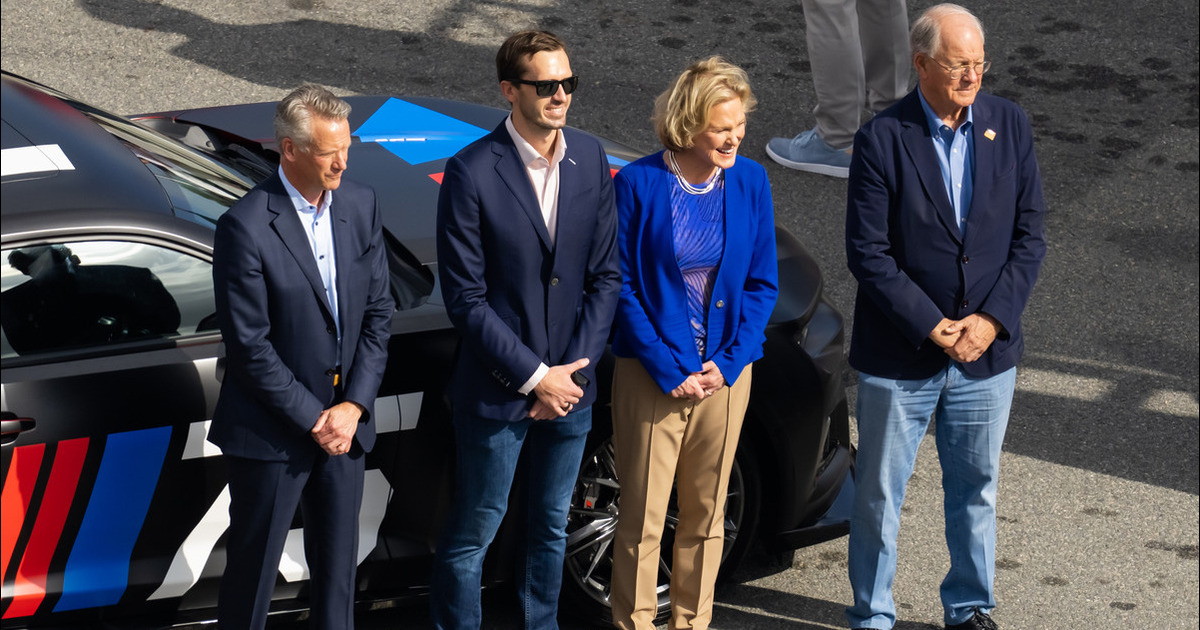Throughout the NASCAR lawsuit, it has been difficult for media and fans to follow along at times, given the nature of the case. It isn’t often you see an antitrust lawsuit of this magnitude, even if they have become more frequent in recent years.
Recently, the district court judge overseeing the NASCAR lawsuit ruled on market definition. In that ruling, Judge Kenneth Bell sided more or less with the Plaintiffs, 23XI Racing and Front Row Motorsports.
This week on the Bloomberg Law podcast, NYU Law School professor Harry First, an antitrust expert, talked about the recent happenings in the lawsuit. Bloomberg seems to be the only mainstream outlet interested in whether one of the country’s oldest sports leagues is changed forever.
“So, the district court judge granted the plaintiffs’ motion for partial summary judgment,” First explained to host June Grasso. “That means some of the important issues are now out of the case. Particularly, as you mention, this contentious issue over what is the relevant market? Is it just this NASCAR premier racing market, does it include other kinds of stock car racing? There are other tiers. Does it include other motorsports?
“The game in antitrust, if you’re a defendant, is to constantly include different kinds of substitutes of what people would watch. But here, the market is a labor market that they’re arguing about, and the question is, what are the choices available for these racecar drivers who are selling their services? And this is basically it.”
Professor First breaks down market defintion
So, clearly, the two sides were in disagreement about the market definition. Professor First feels NASCAR was always going to fight uphill on this issue. In a way, the market has nothing to do with the teams themselves as organizations. The relevant labor market here comes down to premier stock car racing drivers.
It also didn’t help that NASCAR put out the counterclaim against the teams. In that counterclaim, they more or less conceded the market definition.
“But the judge says, ‘Ah, guess what, NASCAR, you filed a counterclaim against these driver teams, which had gotten together to jointly negotiate with NASCAR over these agreements and charters.’ So, we’re alleging that you sort of engaged in a price-fixing conspiracy,” First said of the NASCAR countersuit. “So, they filed a counterclaim. Now, unfortunately for them, when you file a complaint in antitrust, normally you have to put in your complaint what the relevant market is.
“So, they defined a market which was pretty much the same as the market that Michael Jordan defined. But basically, the same labor market, it’s these racing teams. You know, the premier stock car racing group at the very top. So, they basically defined the same market, so the judge says, ‘Haha, sorry. You’ve already admitted it, and you’ve made this admission; that’s your admission. So, we’re done and you’re done. So we don’t have to try this issue.’ I’m sure the defendants and their lawyers were not all that happy with that.
“I think it’s pretty supportable on appeal. There would have been ways to handle the complaint that didn’t fall into this trap, but they were sort of too clever by half. It was a very clever counterclaim, but there was no requirement that they even needed to file it.”
Is NASCAR doomed in antitrust lawsuit? Not quite…
Professor First says NASCAR essentially made an own goal here. The countersuit wasn’t necessary. Even if it was necessary, there were other ways to go about it, and different legal arguments could have been made. Instead, the sanctioning body took the bait.
“So, the judge said, ‘You have this high entry barrier, it’s very hard to enter.’ There are really no substitutes,” First continued. “There are no other teams out there to race. So, on the having monopoly or monopsony power in a relevant market is now out of the case, but that still leaves the question, really two questions, one is they have to engage in some kind of anticompetitive conduct that maintains their monopoly position, and that is still going to go to trial.”
The case is starting to get very real. NASCAR and the teams are prepared to go to trial. However, NASCAR has already taken a big hit here. With the market definition set, part of the work is done already.
So, Jeffrey Kessler can now go to trial more prepared. He won’t have to argue market definition and the details of that. Instead, he can focus on the other arguments. Kessler will now be focused on the alleged misconduct NASCAR took. This is where we will hear arguments over track ownership. Kessler will bring up the ARCA acquisition and other moves from NASCAR.
December 1 is the day the trial begins. Can we expect a settlement before then? That’s hard to see right now, but anything can happen.

